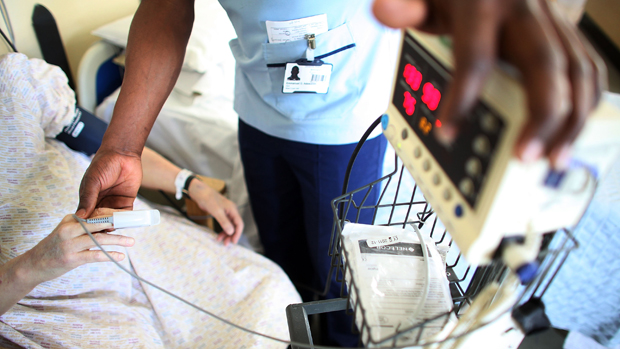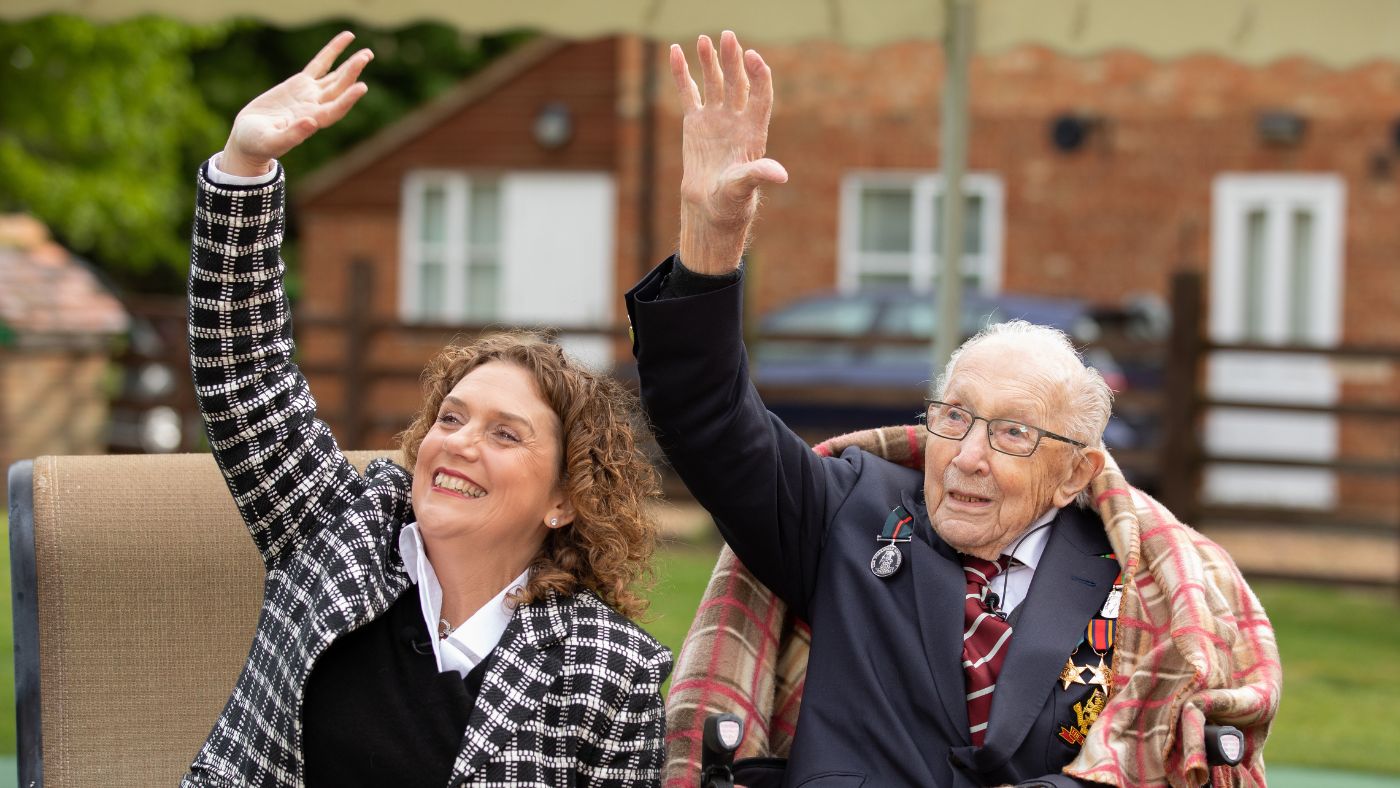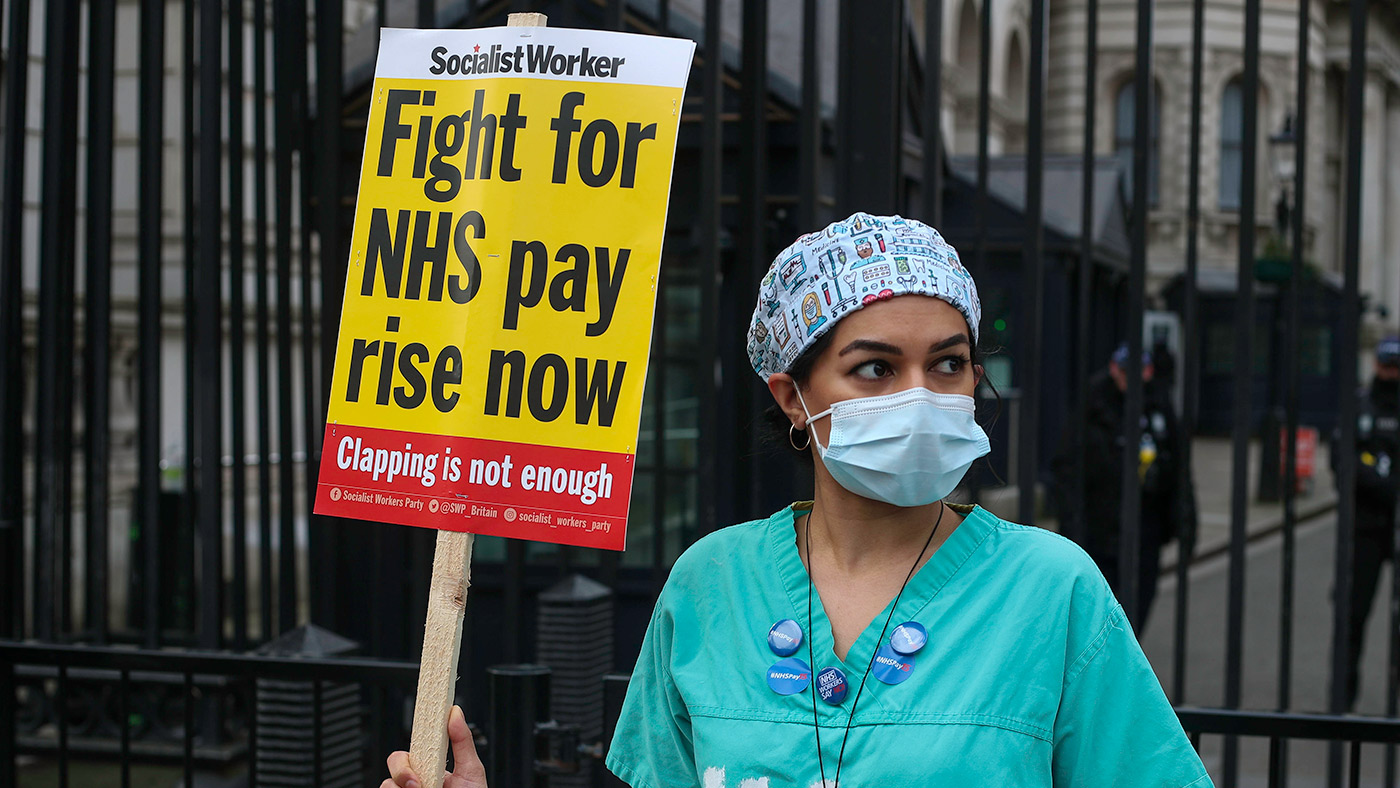Keep patients out of hospitals - they're dangerous, say GPs
But Cameron's health tsar is more positive, saying new culture can make NHS the world's safest

A free daily email with the biggest news stories of the day – and the best features from TheWeek.com
You are now subscribed
Your newsletter sign-up was successful
THE NHS has the potential to become the safest healthcare system in the world, claims David Cameron's new health tsar Don Berwick, but it will require a new "attitude or culture" where "even a single injury" is unacceptable.
Talking in the wake of the Mid Staffordshire scandal, in which as many as 1,200 people died because of substandard care, the American told the Daily Telegraph: "There is no reason why English health care cannot aspire to be and become the safest health care in the world."
But his comments come after GPs delivered an "extraordinary attack" on the standards of hospital care in Britain, according to The Times. In a letter to the paper, family doctors' leaders called for a "paradigm shift" in the way the health service is run in order to keep patients out of hospitals.
The Week
Escape your echo chamber. Get the facts behind the news, plus analysis from multiple perspectives.

Sign up for The Week's Free Newsletters
From our morning news briefing to a weekly Good News Newsletter, get the best of The Week delivered directly to your inbox.
From our morning news briefing to a weekly Good News Newsletter, get the best of The Week delivered directly to your inbox.
"Hospitals can be dangerous places," wrote doctors Chris Drinkwater and Michael Dixon, president and chairman of the NHS Alliance. "We must, as an immediate imperative, shift all non-urgent care from hospital into the community."
Dixon told the paper: "We need to work towards the point when acute hospital admissions should be regarded as a failure rather than a default position."
The NHS Alliance will now submit its recommendations to the new NHS Commissioning Board, led by Sir David Nicholson, who has come under fire for his handling of the Mid Staffordshire scandal.
However, David Cameron's latest appointment, Don Berwick, who helped push through the 'Obamacare' reforms in the US, said he hoped the Staffordshire experience could be used to "bring the NHS to higher levels of safety".
A free daily email with the biggest news stories of the day – and the best features from TheWeek.com
Berwick, who headed the Institute for Health Improvements in the US, said that he wanted to introduce the same kind of safety levels that are present in the aviation industry.
"Zero harm is morally and ethically the right way to go. Why should we tolerate a single injury?" he asked.
-
 Local elections 2026: where are they and who is expected to win?
Local elections 2026: where are they and who is expected to win?The Explainer Labour is braced for heavy losses and U-turn on postponing some council elections hasn’t helped the party’s prospects
-
 6 of the world’s most accessible destinations
6 of the world’s most accessible destinationsThe Week Recommends Experience all of Berlin, Singapore and Sydney
-
 How the FCC’s ‘equal time’ rule works
How the FCC’s ‘equal time’ rule worksIn the Spotlight The law is at the heart of the Colbert-CBS conflict
-
 Captain Tom charity closes to donations amid daughter’s pool row
Captain Tom charity closes to donations amid daughter’s pool rowSpeed Read Hannah Ingram-Moore to appeal council order to demolish spa complex at her home
-
 The Week Unwrapped: Sex and health, the Earth’s core and another new year
The Week Unwrapped: Sex and health, the Earth’s core and another new yearpodcast Is the NHS failing British women? What’s going on at the centre of our planet? And what’s in a date?
-
 National nursing strike: should the patient ‘always come first’?
National nursing strike: should the patient ‘always come first’?Talking Point Recent YouGov poll found that 65% of public approves of strike action
-
 The science behind lab-grown blood
The science behind lab-grown bloodfeature Development of ‘absolute game changer’ could help those with sickle cell and other conditions
-
 ‘Moving CBBC online isn’t modernisation – it’s dangerous’
‘Moving CBBC online isn’t modernisation – it’s dangerous’Instant Opinion Your digest of analysis from the British and international press
-
 The Week Unwrapped: Quitting China, social age checks and dental deserts
The Week Unwrapped: Quitting China, social age checks and dental desertspodcast Why has AirBnB given up on China? Are social networks finally taking age limits seriously? And why is it so hard to find a dentist?
-
 ‘Negotiation with Putin would be a moral disaster’
‘Negotiation with Putin would be a moral disaster’Instant Opinion Your digest of analysis from the British and international press
-
 The Week Unwrapped: Home-working pay cuts, Taiwan and Cinderella
The Week Unwrapped: Home-working pay cuts, Taiwan and Cinderellapodcast Should people who work from home earn 20% less? Is Taiwan at risk of a Chinese invasion? And what does the failure of Andrew Lloyd Webber’s latest production tell us about post-Covid theatre?